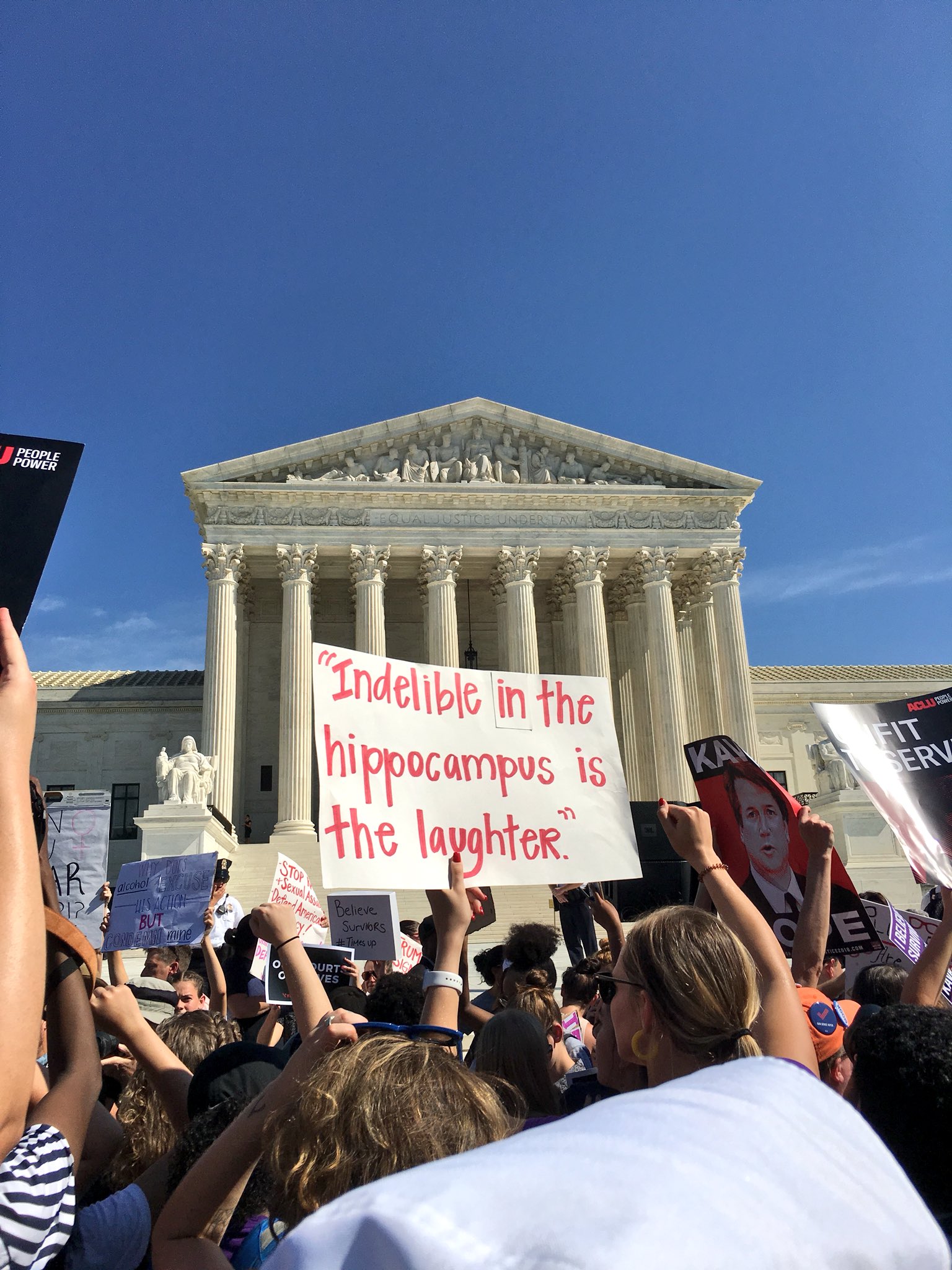 |
| From the ACLU's Twitter Feed, October 4, 2018 |
It is biology, evolution, magic — a precious gift shared by only a few other species on earth.
But
laughter has a dark side. There is laughter that is not meant to show
friendliness or bonding. It is meant to demean, belittle, and objectify. Those
who use laughter as a weapon are often very skilled at it — the bully who makes
someone cry, then convinces the rest of the kids to laugh. The sociopath who
laughs when inflicting pain. Whether consciously our unconsciously, the person
using laughter as a weapon knows that that laughter not only causes pain in the
moment, but repeated pain, time and again. For some victims, they can no longer
tolerate hearing laughter, even when it is joyous. Others are so traumatized
they are convince that they do not deserve to laugh.
I
know that feeling. Laughter was used as a weapon against me more than once in
my life. There were the mean girls who didn’t let me into their group when we
moved from New York to New Jersey. They laughed at my clothes, they laughed at
my accent. Laughter that I could hear sitting inside my house, watching them
walk by, sure that they knew about the chaos I was living with.
I
carry other laughter with me. The laughter that came with the nickname “The
Brainless Wonder.” The laughter that came when, after being forced to sing into a
tape recorder (you like to sing? Then sing!), a song that had lyrics something
like “until I die…” For what seemed like years I had to listen to that tape,
and the voice that cut me off — “with a voice like that, you’re dead already!”
I
was easily embarrassed, felt self conscious, and overly sensitive to laughter
for most of my school years. Someone threw a firecracker at my feet in a school
hallway, and the noise momentarily deafened me. But I could see the laughter on
the face of the person who threw it.
It
was music that saved me, and a music teacher who tolerated my hypersensitivity
and tendency to storm out of a room and slam the door. I found the courage to
sing again, and I spent my entire senior year studying humor and
satire. The pain of the harmful laughter began to fade — not completely, it will never be
completely gone, but it was locked away.
I
thought it was locked away for good. But the brain is capricious with memory.
Things will happen that launch you right back to the most uncomfortable moments
of your past.
Such
is what happened to me listening to the testimony of Dr. Ford. Like many, I had
been sexually assaulted as a teen. A family friend cornered me in a boathouse,
groped me, pulled me close, and put his hands inside my bathing suit. He laughed loudly as I broke
free and ran away. I had actually forgotten about that laughter until Dr. Ford
talked about her own experience. The fact that laughter burns into the
amygdala. That laughter remains a sharp memory when other details may become
fuzzy. I found out that laughter, used as a weapon, lies in waiting, ready to
come roaring back to your conscious mind when you experience just the right
situation.
No comments:
Post a Comment